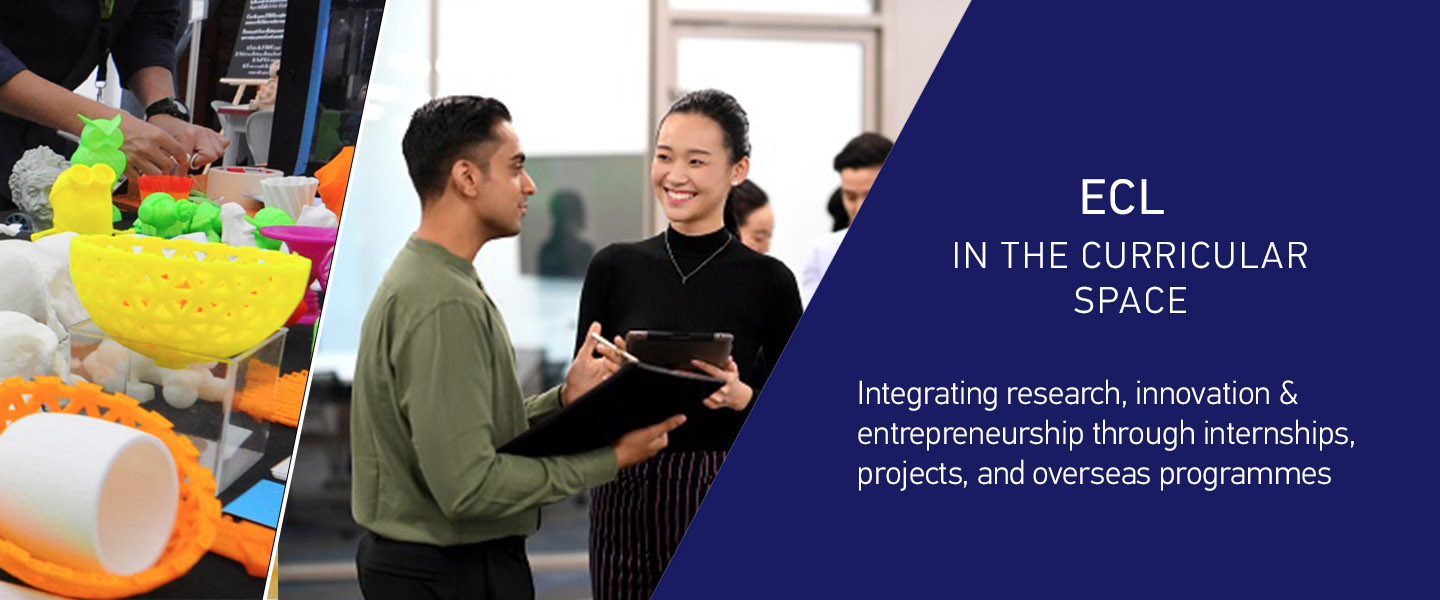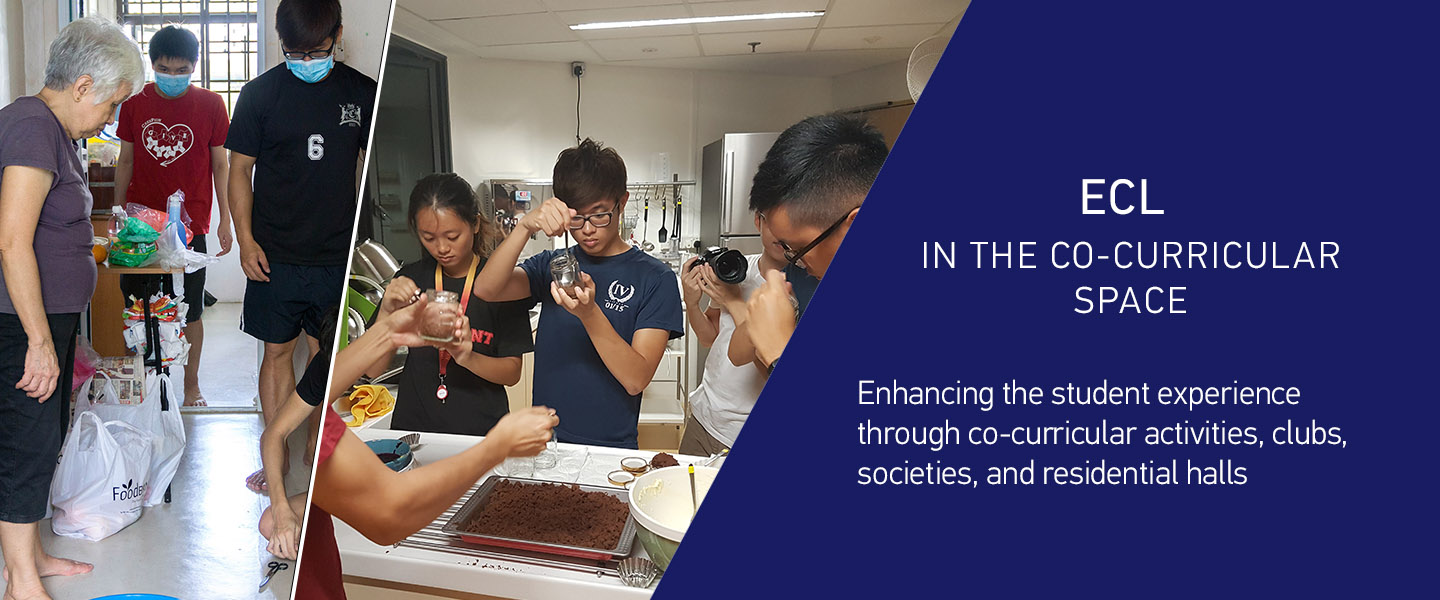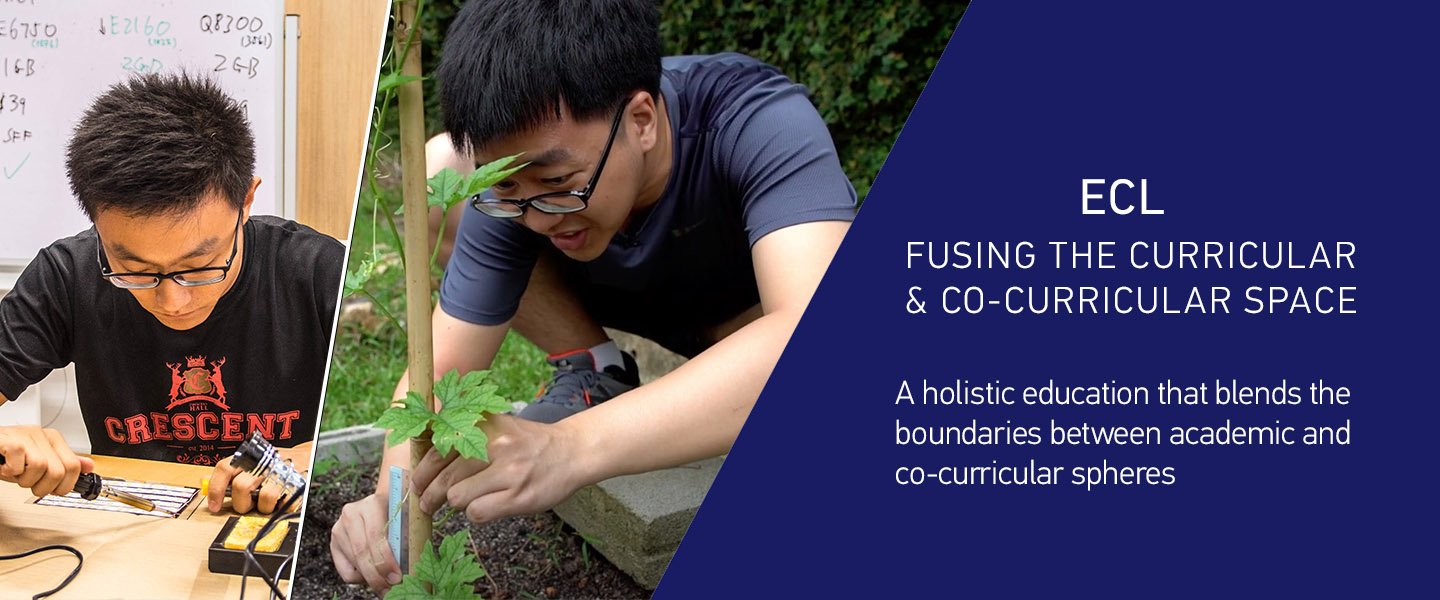Experiential and Collaborative Learning (ECL)
For NTU to truly deliver a holistic university education that can develop attributes and competences required by our students to be successful in the future world, Experiential and Collaborative Learning (ECL) must be a key pillar in our education strategy. The ECL approach inspires students to develop an innate desire to explore and create, and an astute attitude towards risk taking, which they may not easily acquire through conventional didactic teaching and learning.
Experiential learning
is conceptualised as a learning cycle consisting of the following four stages:
Collaborative learning
presents a situation in which two or more people learn or attempt to learn something together, and when effectively carried out, nurtures both individual accountability and positive interdependence.
The ECL Office
supports stakeholders in the following ways to allow ECL to be an integral part of NTU Education:- Identify best practices in ECL through engagement with various Schools and student-facing departments
- Explore new pedagogical approaches and modes of assessment relevant to ECL
- Integrate successfully piloted ECL pedagogies into the core of the revamped Curriculum and Co-Curriculum Framework
- Develop a framework to capture and record student learning and skills developed through ECL
- Formulate a system of appraisal (teaching / service component) to encourage active contribution by faculty

Intended Outcomes
Students who have been positively engaged in ECL will be able to:
- Carry out critical reflection as a component of meaningful learning
- Meet demands for self-directed inquiry to address real-world problems
- Take on innovation with a more risk-resilient frame of mind
- Identify relevant collaborators and work effectively with them
- Develop emotional intelligence and ethical sensitivity
- Better embrace lifelong learning




